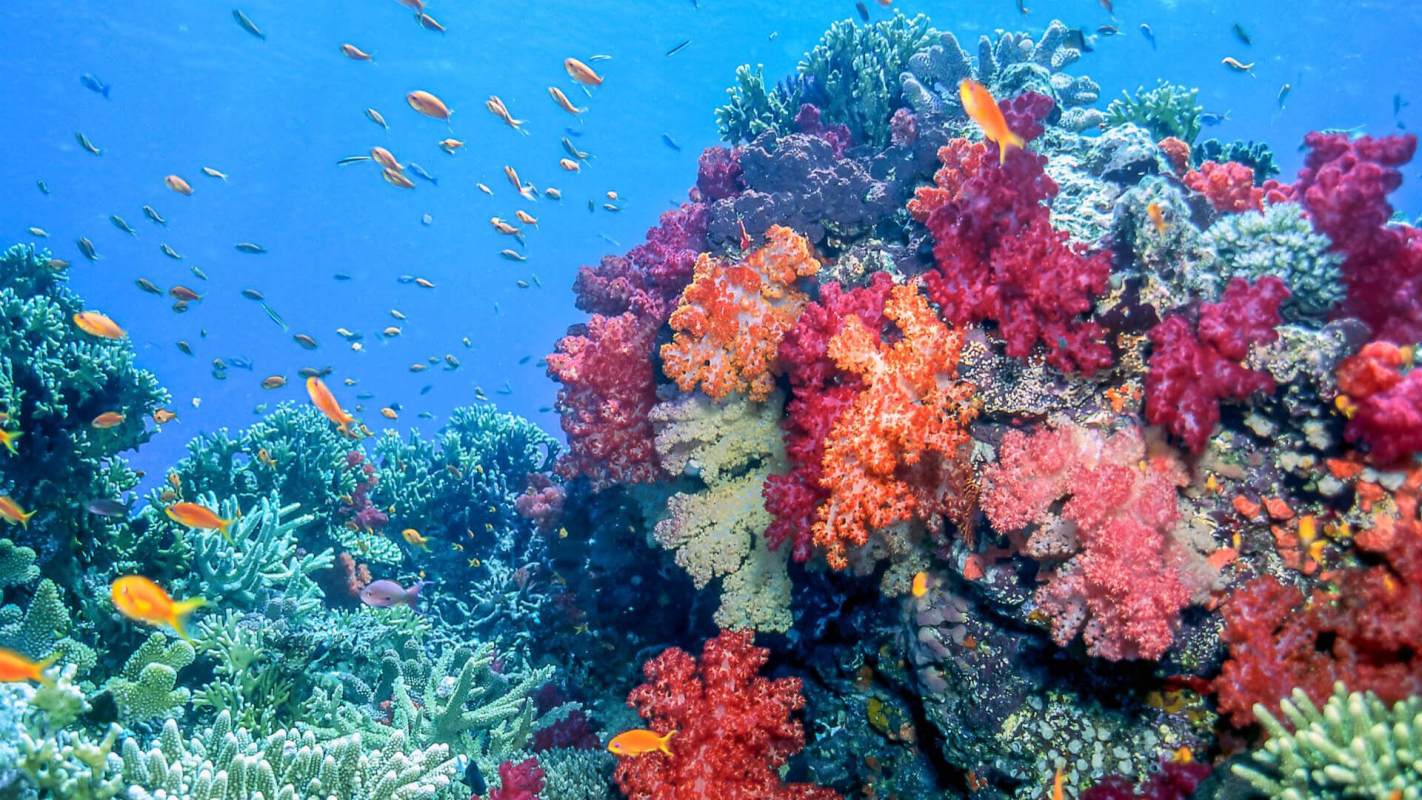Coral Vita is crumbling up coral to rescue reefs — and its technique grows coral 50 times faster than traditional methods.
Coral Vita was founded by Sam Teicher and Gator Halpern to protect and restore coral reefs around the world. Teichert told the Washington Post that the company's focus is creating a "thriving restoration economy where reefs and communities are prosperous and healthy."
According to its website, Coral Vita's specialized farms grow and supply coral for restoration efforts, act as education centers, and draw in eco-tourists. The farms can even work with different species or regions.
Why are coral reefs important?
Coral reefs are essential for the health of marine systems and the people that rely on them. Reefs make up less than 1% of the ocean floor but are home to between 25 and 33% of all marine species.
Coastal communities depend on reefs for food, income, tourism, and even protection from storms. Unfortunately, coral reefs are severely threatened by overfishing, pollution, dredging, and rising temperatures, which makes waters warmer and more acidic.
Coral is stressed more and more frequently, and the reefs aren't getting enough time to recover. According to the World Resources Institute, the world's reefs could be gone by 2100 unless people take drastic action.
How does Coral Vita's process work?
Coral Vita uses a five-step process for all of its restoration projects.
First, the company assesses potential sites and creates a restoration plan. Then, specific coral species are raised with specialized techniques to make them grow quickly and become resilient to harsh environments.
The coral is installed, and the site is monitored to ensure the restoration was successful. These restoration plans are all adapted according to client wishes and the local conditions of each site.
Potential clients range from governments concerned about reef health and marine based economies to resorts wishing to attract more divers and other restoration groups looking to team up.
Typical coral farming happens underwater in nurseries. Pieces of coral are hung from PVC structures to grow. They sort of look like nautical-themed Charlie Brown Christmas trees.
These nurseries are low tech and low cost but the growing coral remains vulnerable to the elements, disease, and predators, as Jessica Ward, the U.S. Virgin Islands coral manager at the Nature Conservancy, told the Washington Post.
Coral Vita's farming, on the other hand, takes place on land in high-tech tanks that allow for careful control of important variables like temperature and pH. This process is more expensive but gives researchers the chance to protect each batch while growing many different types of coral.
The success of this venture largely relies on two practices that help the coral grow quickly while "training" it for the environmental struggles it will face in the real world.
First, microfragmentation, the practice of breaking up collected coral into smaller pieces, jumpstarts growth processes in the organisms and lets Coral Vita raise and install mature corals 50 times faster than natural methods. This approach, developed by Dr. David Vaughan, lets the company cultivate slower growing species or larger forms.
Second, assisted evolution, developed for corals by the late Dr. Ruth Gates, lets Coral Vita encourage rapid adaptation in its coral species to better prepare them for warmer, more acidic waters.
This works through a mixture of "training" with adjusted conditions in the growing tanks and selective breeding of well-performing individuals with desirable traits like heat resilience.
These innovations, along with land-based, scalable farming systems allow the coral restoration company to quickly transform large areas of damaged reefs into self-sustaining habitats.
Coral Vita is a for-profit company in a sea of non-profit organizations. Sam Teicher explains that the company relies on multiple income sources to be less dependent on grants and donations.
Along with the $4 million raised in funding, Coral Vita draws income from contracts like the one with the Bahamian government in 2021, tours of the farm, adopt-a-coral programs, merchandise, and a partnership with Corona, the beverage company.
Coral Vita hopes to set up large coral farms in every country with a reef, but Sam Teicher admits that won't be enough.
"Coral restoration is not a silver bullet," he told the Post. "We need to stop killing coral reefs."
Follow The Cool Down on Instagram and subscribe to our newsletter.








